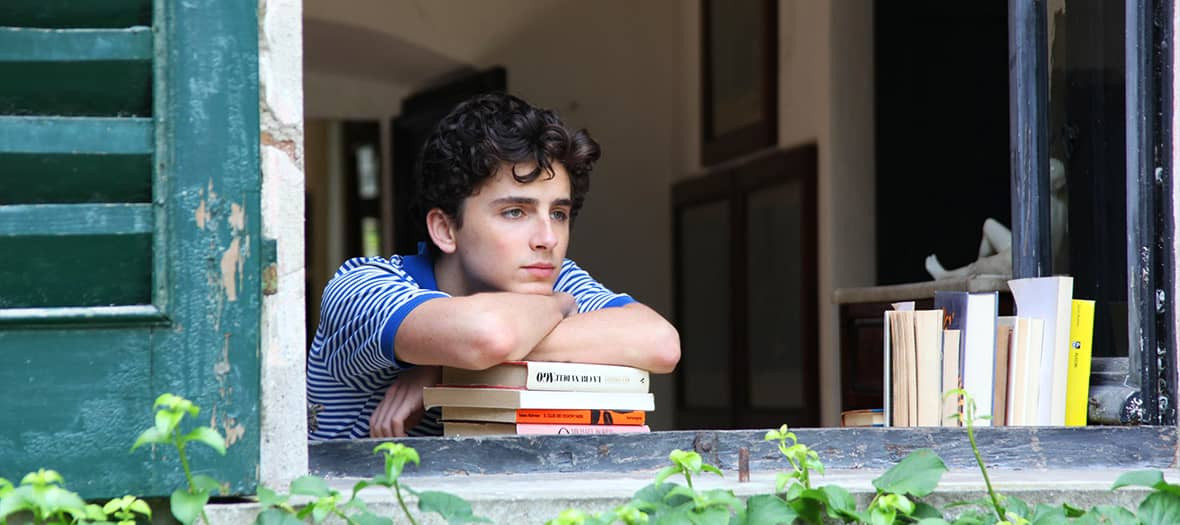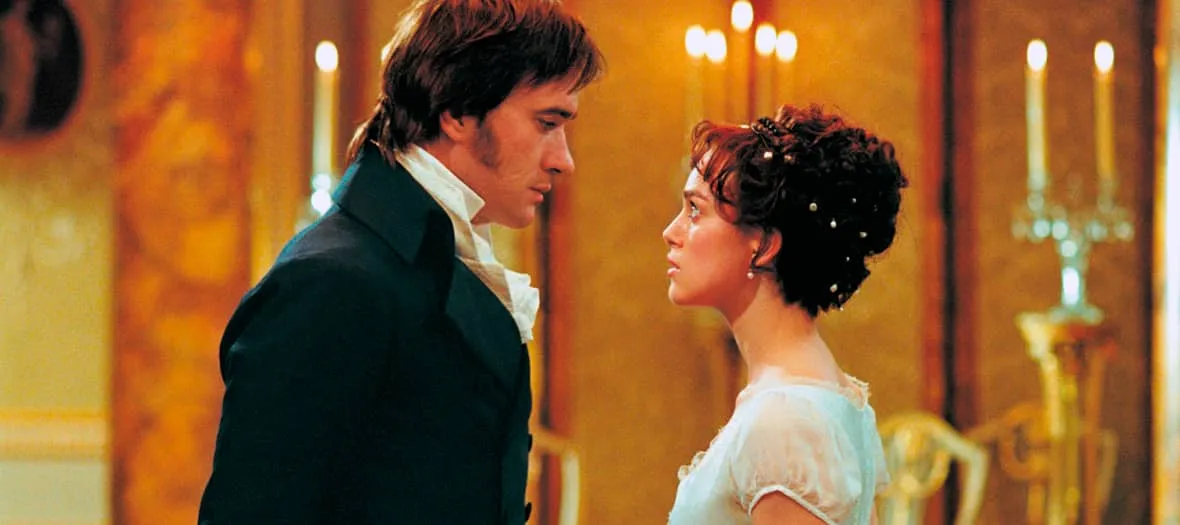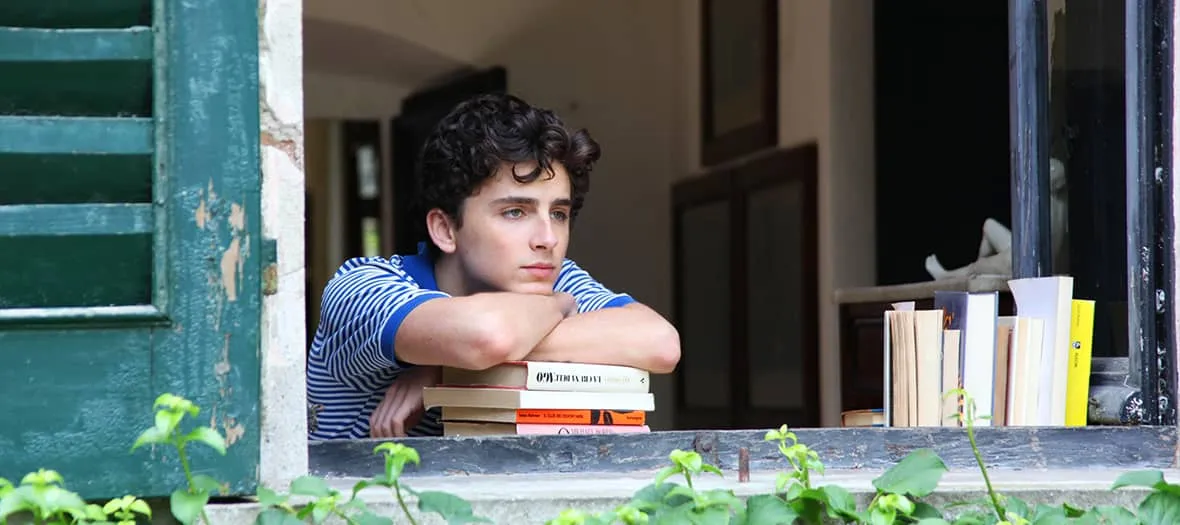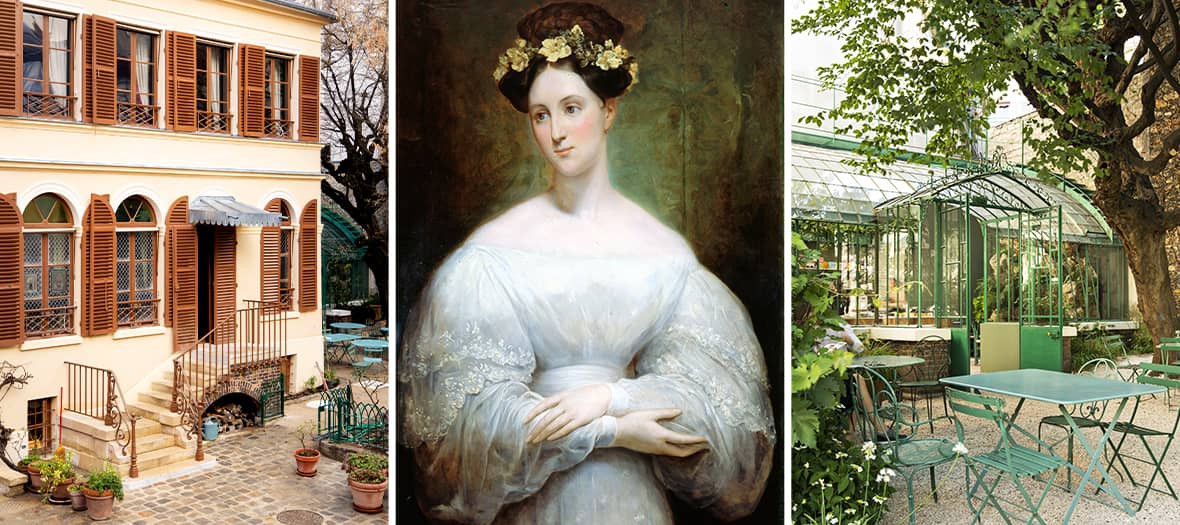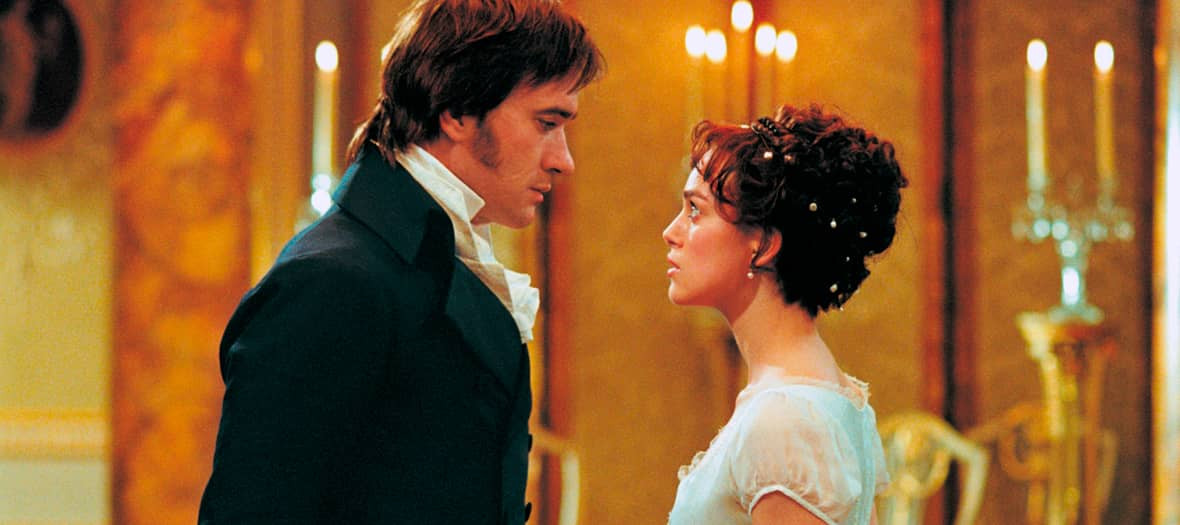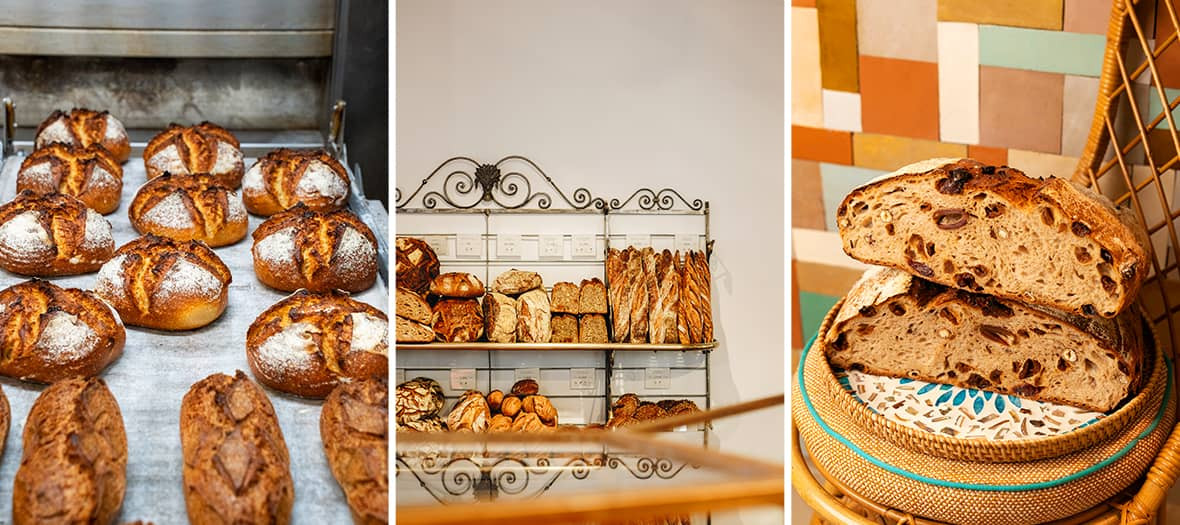When we talk about the literary fall season, we’re talking about more than 500 new releases, and hundreds of authors with strong, distinctive voices. Among this wave of exciting discoveries: the debut novel by Oisín McKenna and his whale stranded in the Thames, Timothée de Fombelle’s poignant love letter, the highly anticipated new novel by Gabriel Tallent, and the powerful voice of Judith Godrèche resonating once again… The must-read discoveries of the moment are right here.
An ode to imaginary love stories
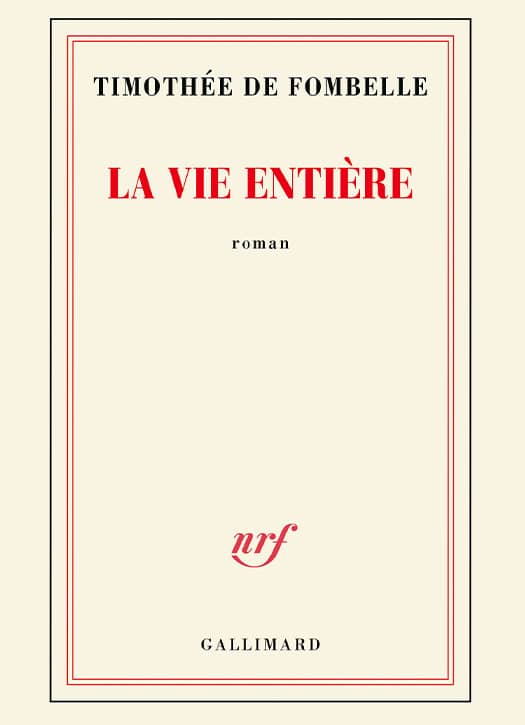
The book to read : La vie entière by Timothée de Fombelle
The pitch : “I invent the place where what we will never live is waiting for us. It is midnight. I write quickly because lines are years.”
We are in 1942, in a small Parisian apartment. Just 17 years old, Claire is a member of the Resistance. She waits for Blanche, the head of the network, who joins her every day at 5 p.m. Each evening, she types the words of a clandestine journal he dictates to her, Les Feuilles volantes.
Today, he is late. She knows that any missed appointment is synonymous with danger. Yet she refuses to leave this apartment, the stage of their imagined love. She waits for the man she secretly loves, fearing the worst. In the urgency of this night, she unravels the thread of their love story. She writes kisses, mad love, children and grandchildren, the sea, a happy old age, and all the ordinary miracles of peacetime. She writes an entire life that exists only in her mind : a story that never was and certainly never will be. A magnificent ode to imagination.
Why you’ll love it : Accustomed to Timothée de Fombelle’s longer works and rich imaginary worlds – Vango, Tobie Lolness, or the quasi-historical Alma trilogy for younger readers – we discover here a completely new style that nevertheless perfectly matches the author’s sensitive writing. This very short text, devoured in a single breath, is a deeply moving reverie of remarkable poetry. Both a war novel and a clandestine love story, La vie entière oscillates between Letter from an Unknown Woman by Stefan Zweig and White Nights by Dostoevsky, paying tribute to all the lives that never were.
The monologues of an overbearing mother
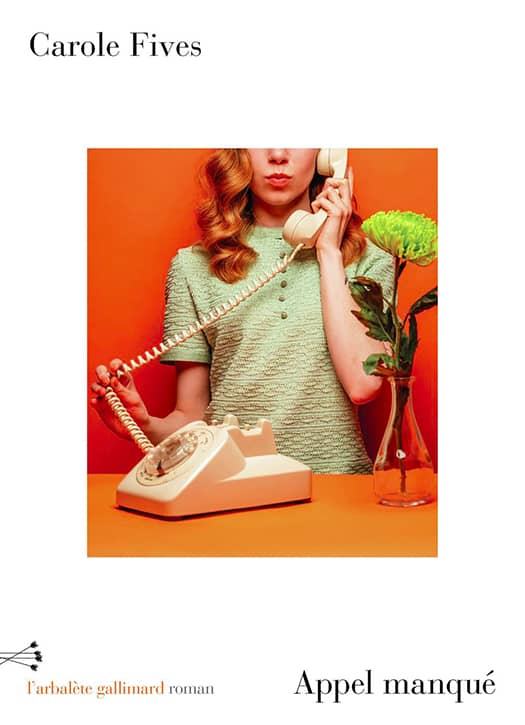
The book to read : Appel Manqué by Carole Fives
The pitch : “Instead of going to the therapist… Oh, you’ve wasted time and money on that, but it’s not at the therapist’s office that revolutions happen, my girl.”
Charlène is 73 years old and lives alone in a suburban house in Carcassonne, with her dog Bistouri. When she gets bored, she calls her daughter and leaves long monologues on her answering machine. Complaints, cries for help, major revelations : everything comes out. She’s a fiery little woman: she self-diagnoses as bipolar, makes phone calls while parallel parking, drives too fast to Spain to buy cigarettes, steals loyalty points from her beloved daughter (who has them all), and hates water, except in pastis.
Charlène collects troubles : the dates she strings together on a dating site in hopes of finding a soulmate, the young woman renting her garage to supplement her modest pension who seems to have it out for her dog, friends drifting away, COVID keeping her isolated at home, and her children living far away… And all of it has to be shared with someone.
Why you’ll love it : A joyful reunion with Charlène, first introduced in Une femme au téléphone, where Carole Fives compiled the plaintive messages this invasive mother left on her daughter’s voicemail. Appel Manqué marks the powerful return of this retired woman—both irritating and endearing, bursting with energy. With great humor and an almost theatrical format, the author confronts two generations of women struggling to understand each other while questioning their relationship to feminism. Charlène struggles to express her loneliness and isolation, while we clearly sense the patience and devotion of her daughter. We laugh, we empathize, we roll our eyes. It’s sharp, biting, and delightfully caustic.
A contemporary fresco of a city on edge
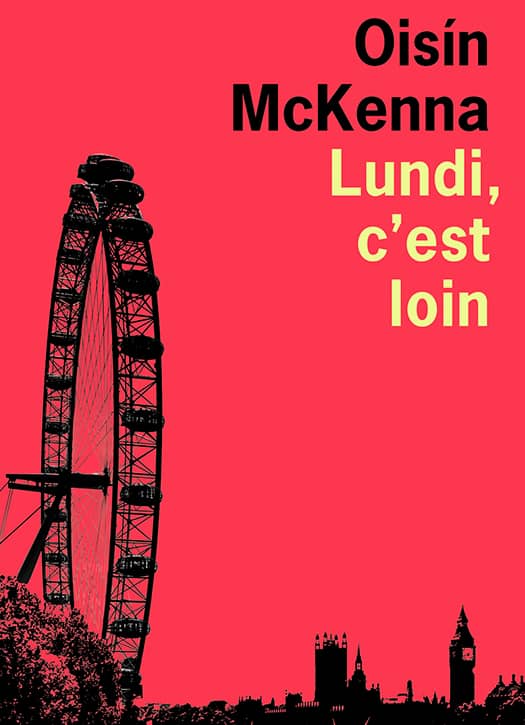
The book to read : Lundi, c’est loin by Oisín McKenna
The pitch : A whale has run aground in the Thames, throwing London into a frenzy. It’s June, and the city is suffocating under unbearable heat. Over the course of one weekend, the certainties of Ed, Maggie, Phil, and Rosaleen are shaken. Ed is a bike courier about to become a father, haunted by the fear of not being good enough. His partner Maggie has worked as a café waitress for eight years, today is her last day. They’re both about to leave London for the countryside.
Phil, Maggie’s best friend, lives only for weekends and their promise of endless parties. Rosaleen, his mother, is struggling with cancer and doesn’t know how to talk to him about it. Each character narrates relationships that are running out of steam, lost illusions, unspoken truths, fears of getting it wrong, and heavy silences—forming a chorus of melancholy that is as beautiful as it is painful.
Why you’ll love it : Calling all fans of Tales of the City : Oisín McKenna delivers a choral debut novel that could easily be the British version of our beloved 1980s classic. With a refined pen, the Irish author crafts a well-structured, emotionally rich portrait of contemporary romantic relationships. The characters’ lives intertwine seamlessly within a vividly rendered city : its parties, neighborhoods, crowds, and the exhaustion of daily routine. A promising author to watch very closely.
The powerful story of a pure friendship
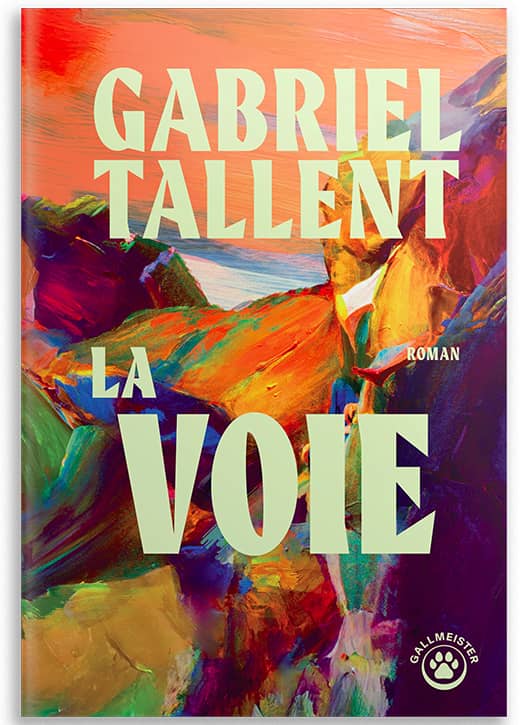
The book to read : La Voie by Gabriel Tallent
The pitch : “We stake our entire lives on a dream.”
We are in the southern Mojave Desert. Dan and Tamma are starting their final year of high school—he’s a prodigy, she’s a rebellious free spirit. Inseparable, they dream of a life of adventure. They share a passion for rock climbing, practiced without equipment, ignoring danger and braving the desert’s extreme conditions. For Dan, climbing could become an exhilarating calling; for Tamma, it’s an escape from her dysfunctional family.
As the two friends reach a decisive turning point in their lives, will their differences in background, talent, and ambition threaten their friendship? A brutal and masterful story about courage and the pull of adventure.
Why you’ll love it : Gabriel Tallent has a rare talent for creating unforgettable characters. In his previous novel, My absolute darling, we followed Turtle Alveston’s quest for freedom. With La Voie, the author delivers a luminous, emotionally gripping story about the power of friendship and the strength of nature : two essential anchors in our turbulent lives. With subtle humor, he explores fear, uncertainty, and the transition to adulthood, leaving us quietly optimistic and deeply reflective.
A deeply moving autobiographical puzzle

The book to read : Prière de remettre en ordre avant de quitter les lieux by Judith Godrèche
The pitch : “I’m going to tell you a disjointed story : the story of a child who survives.”
The opening lines set the tone as the author presents fragments of her life: teenage photos, press clippings, letters from her mother, school assignments, poems, and supportive messages received after her public statements. Like a diary, she sketches her stolen childhood and the fragile woman she became.
In 2024, she filed a complaint against director Benoît Jacquot, whom she met on the set of Les Mendiants when she was just 14. Throughout these pages, she dissects a relationship marked by control, manipulation, blackmail, shame, guilt—and the silence of the adults around her at the time. A difficult but necessary account.
Why you’ll love it : Judith Godrèche plunges into her childhood memories, reconnecting with the little girl she was before meeting Benoît Jacquot, reconstructing her youth fragment by fragment under a regime of fear. At just 23, she had already published Point de côté, a revealing novel about a young woman trying to write a breakup letter to the man she had lived with since the age of fourteen.
And also…
The story of a family silence

The must-read novel: Officier Radio by Marie Richeux
The pitch. Marie Richeux collects voices and gathers stories. She goes where others refuse to tread, into places of pain that many would rather leave untouched. “How do we not forget?” her father asks. To answer, she dives into the depths of family memory, back to 1979, when her uncle disappeared at sea. Officier Radio was the post he held on the Emmanuel Delmas at the time of the shipwreck. Returning from Africa, his boat collided with an Italian oil tanker on the night of June 26. Few deaths among the Italians, but on the French side, almost the entire crew perished in the fire.
A trial in Italy, financial compensation for families, a ceremony with empty coffins—and then radio silence. Silence from her aunt, who fought to uncover the truth. Silence from her cousin, who lost his father. Silence from Marie’s own father, who lost a brother. It is this silence that drives the journalist to unearth the past, to understand the present. Out come boxes of archives and photographs from the attic—along with long-suppressed voices and a story finally revealed.
Why you’ll love it. Journalist at France Culture, Marie Richeux has the gift of saying much with very few words. In this autobiographical account, she delicately tackles silences, offering a piece of her family’s legacy. With Officier Radio, she also tells the story of seafaring families—especially the women whose lives are lived in waiting. A beautiful text on silence, memory, and its enduring power.
A hymn to words and their power
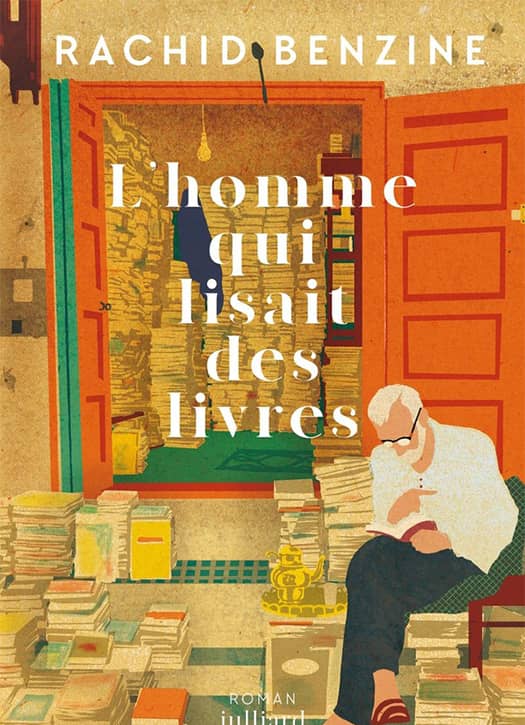
The must-read novel: L’homme qui lisait des livres by Rachid Benzine
The pitch. A French journalist wanders through the streets of Gaza. He photographs what TV never shows: fragments of life that persist despite bombings, capturing a deeper truth. Among the ruins, he knows the city by heart. Yet one day, he discovers a solitary bookseller, sitting on the steps of his shop, sipping tea and reading, surrounded by towers of books. The reporter takes out his camera. “Isn’t there, behind every gaze, a story? The story of a life. Sometimes the story of an entire people,” asks Nabil Al Jaber.
Thus begins the exchange between the two men. We are taken back to the early 1960s. This man, who chose books as his refuge, recounts his childhood in refugee camps, the exile of his people, Israeli attacks, poverty, fear, grief. And amidst this suffering, his story of love—first with books, then with Hiam, with whom he performed Shakespeare on stage among ruins and broken lives. Through his testimony, Nabil Al Jaber shows us the path of forgiveness and compassion.
Why you’ll love it. After Le silence des pères and Voyage au bout de l’enfance, Rachid Benzine once again delivers a moving and powerful story. With sober, precise writing, he offers a contemporary fable about the power of words and the “men-books”—the last resistors against the world’s collapse. Without judgment, he reminds us of the essential: literature and books as havens of beauty. A hopeful story that lingers long after you’ve closed the last page.
A novel set in the heart of the Scottish Highlands
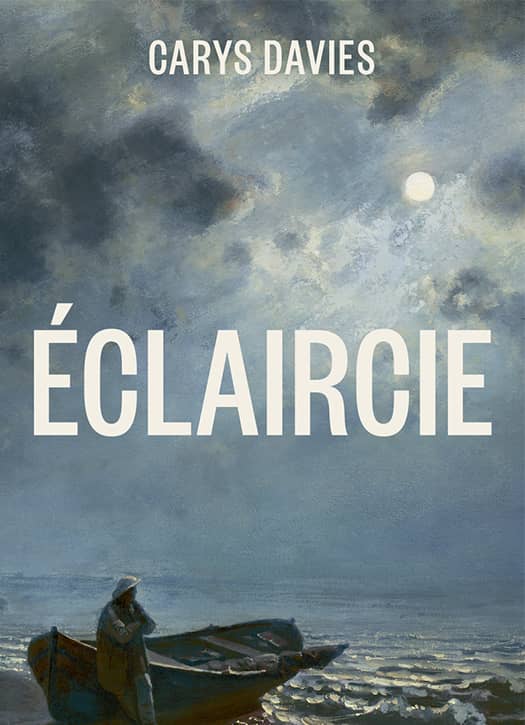
The must-read novel: Éclaircie by Carys Davies
The pitch. It’s 1843, in the Shetland archipelago off the coast of Scotland. Ivar is the last inhabitant of his windswept island. Since his family’s departure, he lives a solitary life with his aging animals and his spinning wheel. His days are spent weaving wool or roaming the wild. On one such walk, he discovers an unconscious man at the foot of a cliff. He brings him home, feeds him, mends his torn clothes, and nurses him back to health.
This man is John Ferguson, a minister for the Free Church of Scotland. His presence is no coincidence: he has come to expel Ivar from the island and claim his land. But upon awakening, the pastor cannot bring himself to announce that he has come to take away the only home Ivar has ever known. Thus begins a wordless friendship, built in silence. Ivar points to things, giving John the keys to understand the land and its language—one that he has made his own over time.
Why you’ll love it. From the plains of Kentucky in her first novel West, Carys Davies takes us now to an island off Scotland, close to Norway. We dive into the 19th century, at the birth of the Free Church and during the Highland Clearances, the agricultural upheavals that tore Scottish communities apart. Around these historical facts, the author weaves a profoundly humanist tale. With simple, poetic prose, she delivers a story of remarkable subtlety. A hymn to the words that bind us.
A flamboyant Albanian tale

The must-read novel: Nous sommes faits d’orage by Marie Charrel
The pitch. The keys to a remote shack at the edge of the world, and a note: “Find Elora.” Such is the inheritance left by Ester to her daughter. Without hesitation, Sarah leaves Iceland for the Albanian mountains. Guided by a local, she reaches a nameless village, a mystical place where, since the fall of the despotic regime, only a handful of wandering souls remain. From icy fjords to deserted peaks, Sarah—an eco-acoustics researcher—listens to the wind, nature, and the whispers of villagers in this forgotten land.
Her journey leads her on the trail of her mother’s past and of Elora, the “child of fire.” Defying all, Elora chose freedom, following the shepherds who carved poems into stone, shaping the destiny of generations of women—including Sarah. Her quest takes us through the 1970s under dictatorship, the corruption of the 1980s, and the fall of the regime in the 1990s—on the path of Dritan, Ilir, Sokol, and Ester, who resisted through words.
Why you’ll love it. Author of L’enfant tombé des rêves, Les danseurs de l’aube, Les mangeurs de nuit… Marie Charrel excels in weaving myths and legends into our world. Nous sommes faits d’orage is no exception: the author immerses us in Albanian folklore during the despotic rule of Enver Hoxha. She paints a luminous historical fresco, blending imagination, resistance, and freedom. A hymn to nature that shapes us, to words that allow us to exist, and above all, to women—courageous bearers of a collapsing world.
A feel-good novel infiltrating the world of influencers
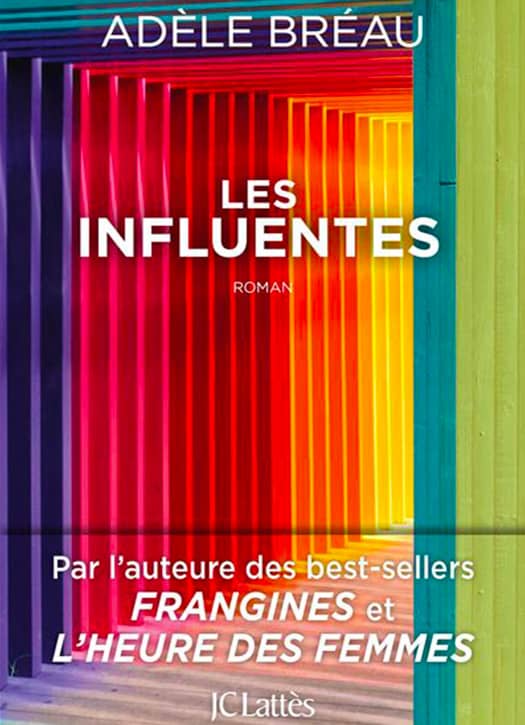
The must-read book: Les Influentes by Adèle Bréau
The pitch: Anne, a mother of three who runs a small business selling handmade creations, sees her life turned upside down when Beyoncé is spotted wearing one of her jumpsuits. Blanche, the editor-in-chief of the major magazine Attitude, immediately notices and seizes the opportunity to capitalize on her rising fame. In a world increasingly driven by social media, Myrtille, a young, trendy stylist, realizes the need to embrace modern tools to promote emerging talents.
Through live Insta sessions, stories, crossposts, and hashtags, the influencer world collides with the fashion scene. But when you bring together a mom who shies away from the limelight, a conservative editor who detests talentless influencers, and a fresh-faced stylist debuting during Paris Fashion Week, three vastly different worlds clash—for better or worse.
Why you’ll love it: Whatever your life, you’ll likely find a bit of yourself in the characters of Blanche, Anne, and Myrtille. The interconnected lives, aspirations, and talents in Les Influentes echo the spirit of La Tresse by Laetitia Colombani, weaving the stories of three strong women. And who better than Adèle Bréau—fashion director at Gala and author of the acclaimed L’Heure des Femmes (published in 2023)—to deliver such a witty, insightful portrayal of the fashion world? She takes readers behind the scenes of major magazine offices and into the most exclusive events, crafting a story that’s both critical (of influencers and old-school editorial practices alike) and nostalgic for a world of glitz and glamor. Her novel is a delightful, eye-opening treat.
Splendor and Misery at the Heart of Place Vendôme
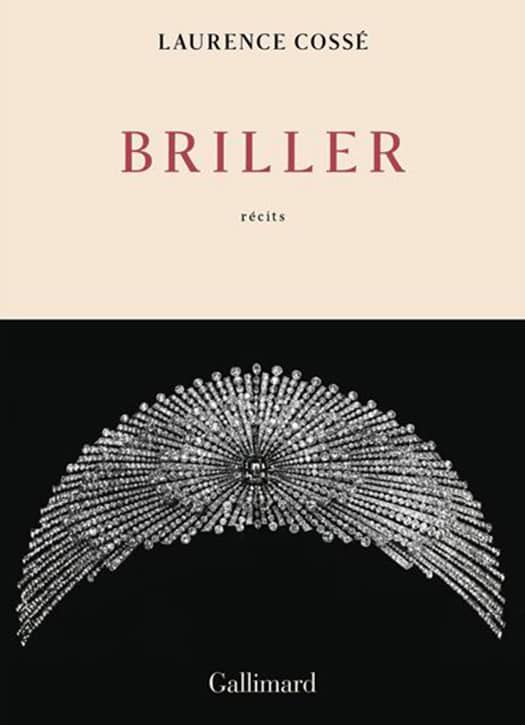
The book: Briller by Laurence Cossé
The pitch. The jewels of Marie-Étienne Nitot for Napoleon, the treasures of the Dolly Sisters, the “sun” tiara of Princess Irina Yusupov, niece of Tsar Nicholas II, or the emeralds of the Romanov princesses... These treasures come from a high-jewelry house with a history brimming with anecdotes. Founded in 1780 by Marie-Étienne Nitot, Chaumet has passed through the hands of passionate families: the Nitot of the Empire, the Fossin of the Restoration, the Morel of the Second Empire, and, of course, the Chaumet family since 1889.
This house has not only preserved exceptional craftsmanship but also countless secrets entrusted by its clientele. Chaumet’s history is also marked by a series of disappearances: the Crown Jewels, partially stolen in 1792 and later sold off in 1887, the Napoleonic sets melted down or repurposed during the Restoration… A jewel’s life is full of misadventures, and this makes for an unpredictable and delightful journey through time.
Why you’ll love it: After imagining an ideal bookstore selling only masterpieces in Au bon roman and exploring the political stakes behind the construction of the Grande Arche in La Grande Arche, Laurence Cossé ventures into the world of a Parisian high-jewelry house. With meticulous research from Chaumet’s archives, this novel revives brilliant personalities from the Empire era to today, blending historical and fictional narratives. The author effortlessly takes us behind the scenes of this fabulous family saga that has lit up Place Vendôme since 1780.
A Cruel Tale of Love and Disillusion
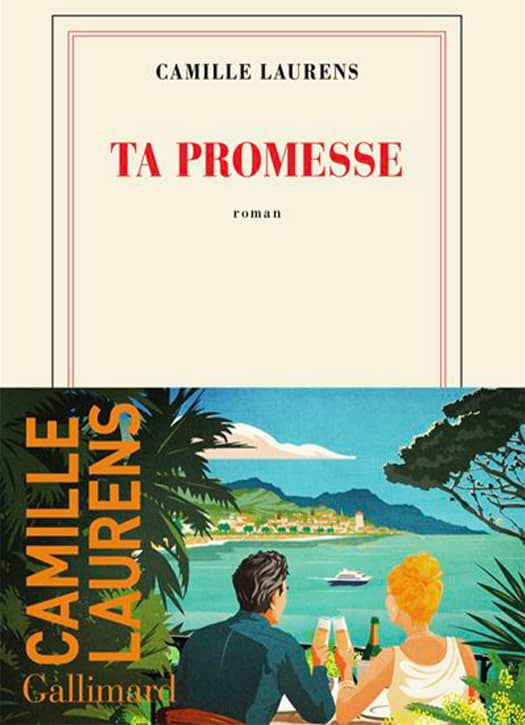
The book: La promesse by Camille Laurens
The pitch. This novel begins at the end, with its last lines. Claire discovers the proof we’ve been waiting for throughout the story. Why start at the end, you may ask? Because it allows the story to unfold easily, even if it means breaking a promise. Let’s go back to where it all began: a candlelit dinner where Claire makes a promise to her lover—a promise she knows she won’t keep. And where it all ends: in court.
How does Claire Lancel end up recounting her story before a judge? It’s simple: the rise and fall of a couple, condensed. A love story that could have been extraordinary if not for the lies and manipulations. Between Claire and Gilles, it was love at first sight, quickly followed by disillusionment, the discovery of a man’s perverse love, and finally, nothing left but the question: “Was what we experienced love?”
Why you’ll love it: Camille Laurens is a seasoned author whose name has resonated in the literary world since her debut novel Index in 1991. Before La promesse, there was Fille, where the author delicately explored the transmission of womanhood and the importance of words in their formation. Here, Laurens crafts the tension of a thriller, pulling us into the heroine’s quest for truth. With her incisive style, she dissects a couple’s rise and fall, examining contemporary narcissism, a lack of empathy, and the blindness we embrace when things fall apart.
A Remarkable Identity Quest
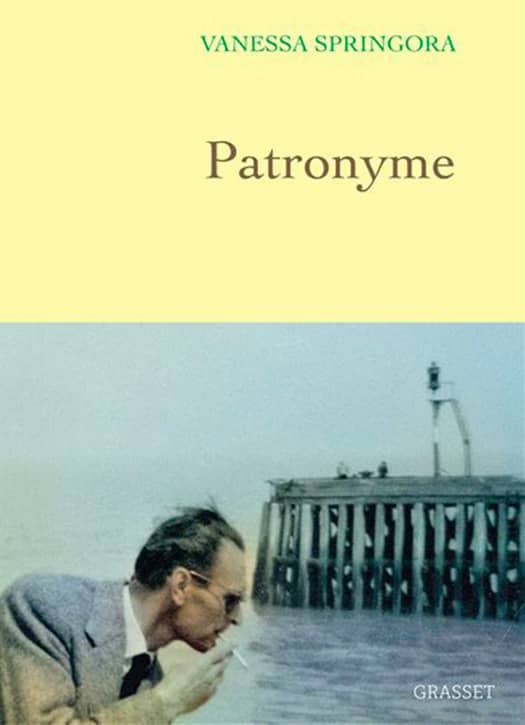
The book: Patronyme by Vanessa Springora
The pitch. “You’re writing a book about your father? You’re quite tolerant, given all the harm that scumbag did to you!” Yet that’s exactly the project Vanessa Springora undertakes after her father’s death. On her way to La Grande Librairie, she’s called to identify her father’s lifeless body, a man she hadn’t seen in 10 years. A toxic, mythomaniac, hypermnestic, and misanthropic figure who had descended into madness in his final years.
As she empties the 35m² space Patrick Springora occupied, she stumbles upon a shocking discovery: two photos from the late 1930s showing her paternal grandfather wearing Nazi insignia. Horrified, she embarks on a quest for the truth.
But who was this “Czechoslovak refugee always presented to me as a hero”? Her search takes her to the Czech Republic, to German archives, to witnesses in Moravia, and back to her French roots—a nearly obsessive identity quest. Amid small breakthroughs, doubts, and dead ends, Springora delivers a compelling genealogical investigation. The effort is immense, but the result is sublime.
Why you’ll love it: Vanessa Springora became a household name with her first book Le consentement, a powerful testimony of the abusive relationship she endured at age 14 with the renowned writer Gabriel Matzneff—a text that sparked significant judicial changes in France. With Patronyme, she delivers another intimate journey, blending fiction and analysis, travelogues and family legends. She interrogates the myth of her origins, the twists and turns of her family name, and the mysteries surrounding the male figures of her childhood, exposing the devastating power of silence.
A Powerful Novel About School Bullying
The book: Vous parlez de mon fils by Philippe Besson
The pitch. Why did Hugo succumb to the torment inflicted by two stupid and cruel kids? That’s the question Vincent asks as he walks in the procession honoring the memory of his 14-year-old son, Hugo. Accompanied by his wife Juliette and their youngest son Enzo, Vincent reflects during the “white march” through the streets of Saint-Nazaire.
Vincent recalls the moment Juliette confided, “I think something’s wrong with Hugo,” and the harrowing memories of his son’s descent into the nightmare of bullying and despair. Questions intertwine: How are they responsible? How did they fail him? And above all, how can they forgive the bullies’ cruelty, the institution’s cowardice, and the indifference of bystanders?
Why you’ll love it: Philippe Besson, author of L’Enfant d’octobre (on the Gregory affair), Les Jours fragiles (on Rimbaud’s final days), and Un soir d’été (on an unresolved Île de Ré case), has a knack for crafting heart-wrenching narratives. In Vous parlez de mon fils, Besson presents a poignant indictment of modern society’s ordinary violence. Through the narrator’s raw thoughts, he examines intolerance, bullying, institutional shortcomings, adult helplessness, and the complexities of grief and family ties.
Discover also The Most Anticipated Exhibitions of the Winter et 5 new series to binge-watch in January




